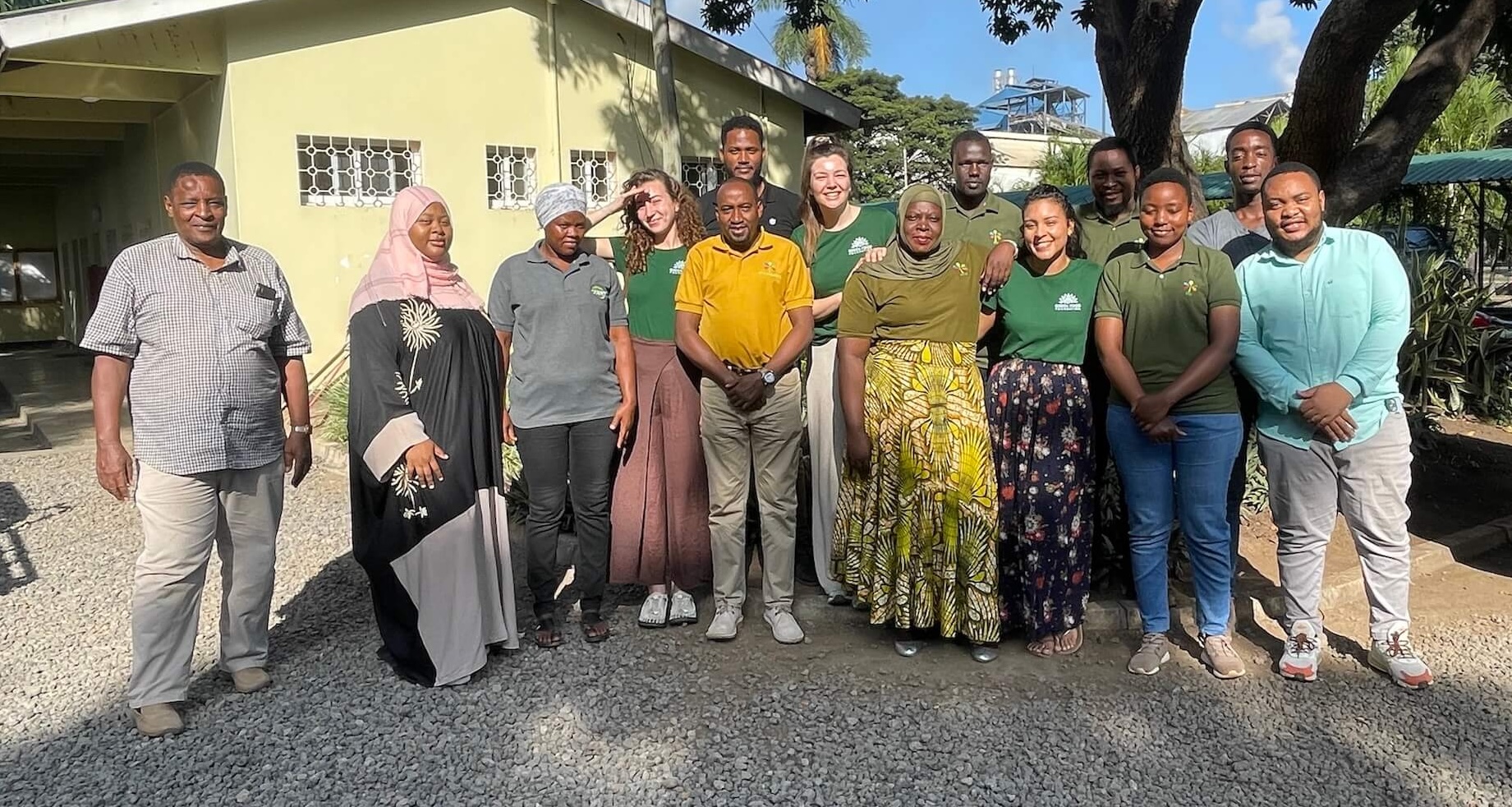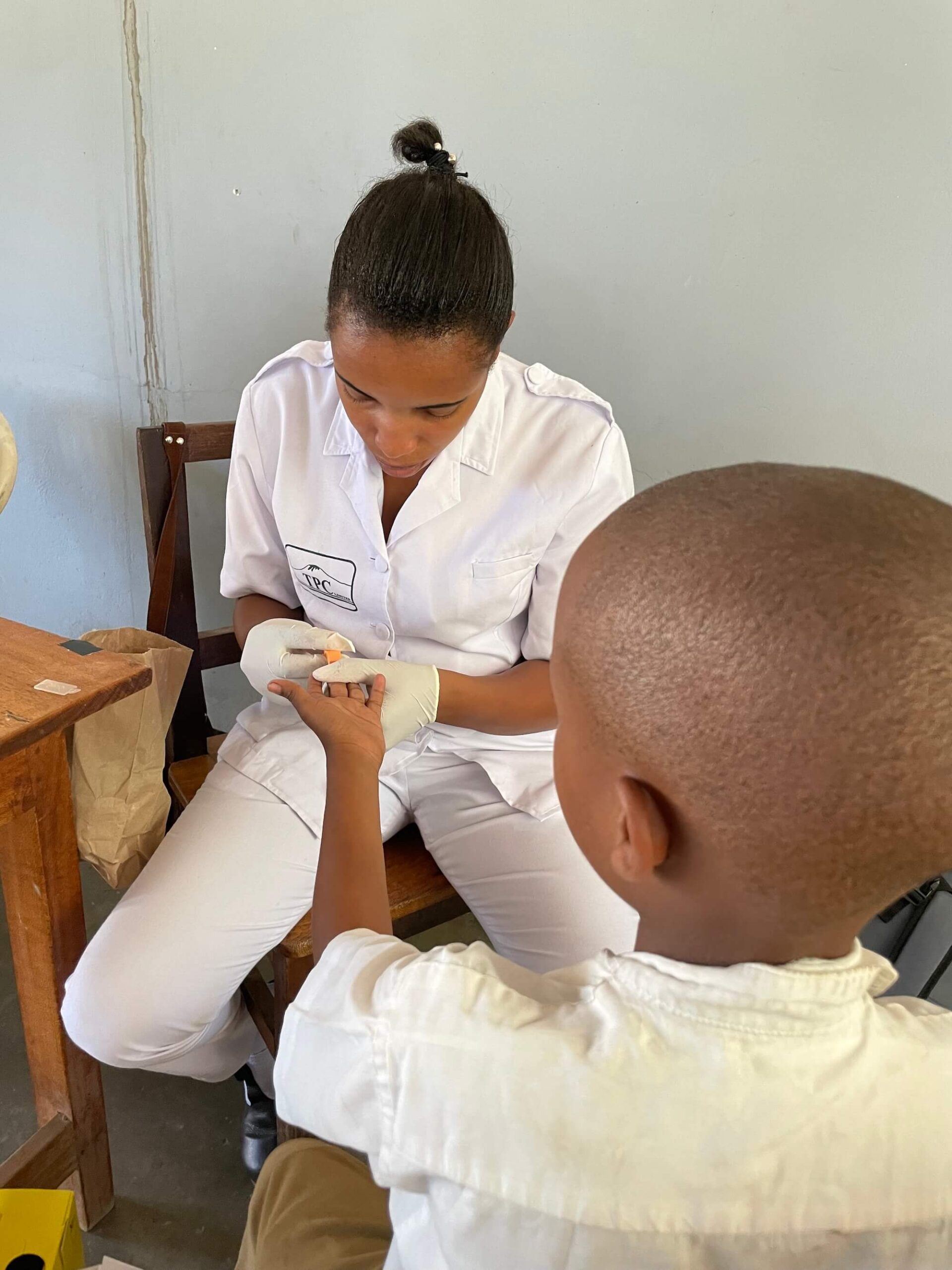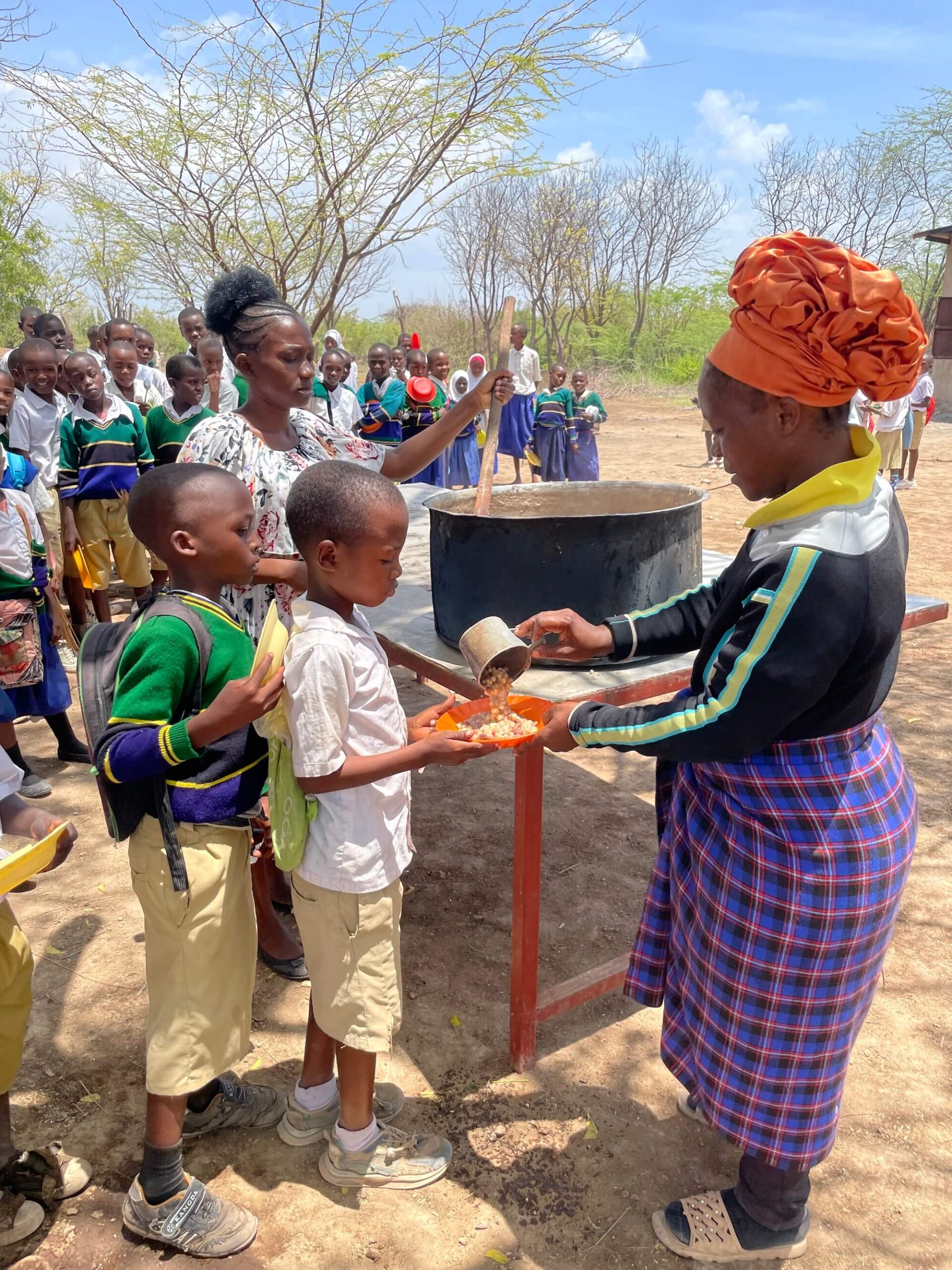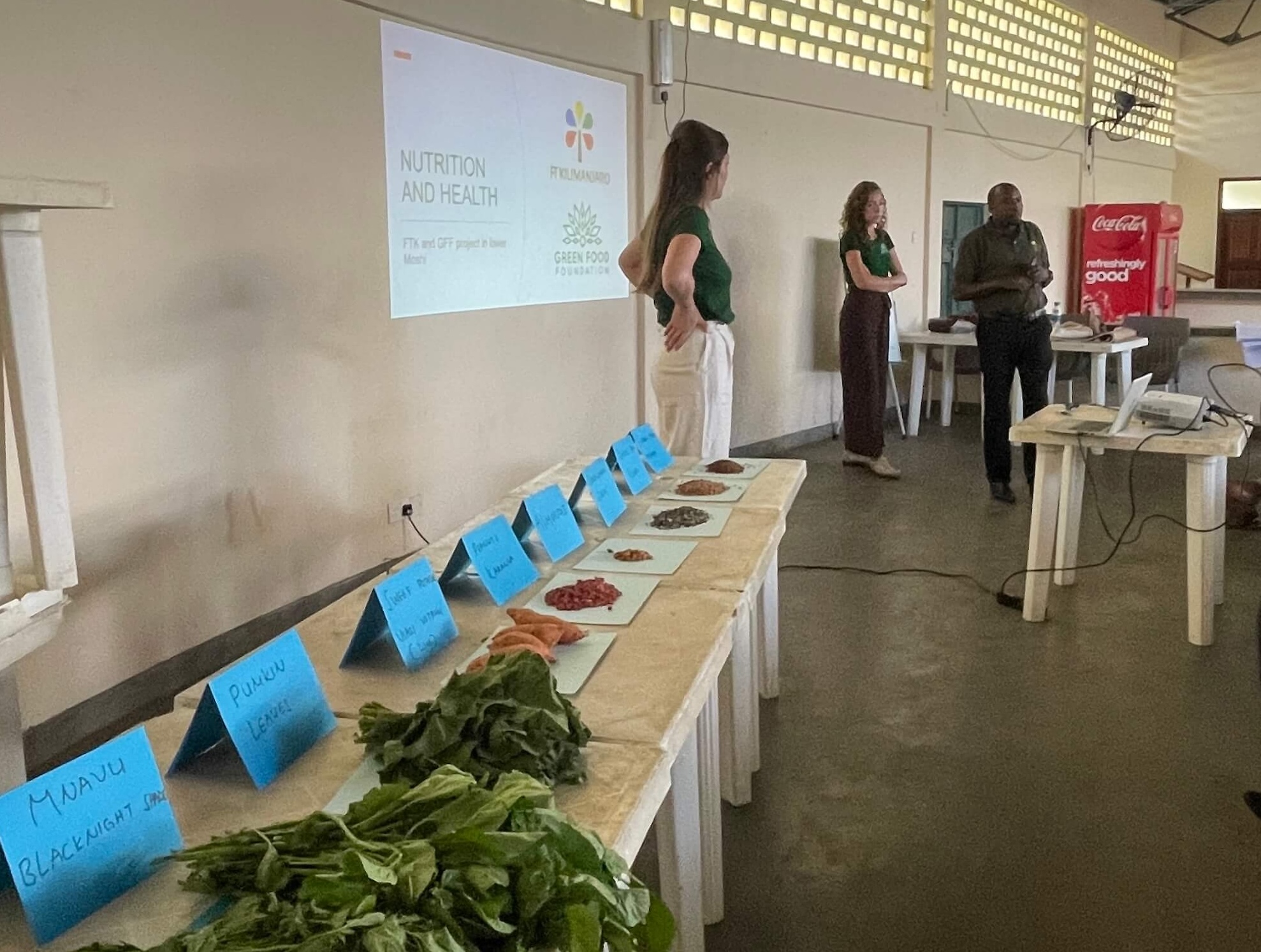New project in Tanzania
In the heart of Tanzania, at the foot of Mount Kilimanjaro, lies the Lower Moshi region, where children at nine schools were recently assessed for their nutritional status. This important project was carried out by three health professionals, with the aim of obtaining a detailed picture of the health and nutrition of these children. The study was organized by the Green Food Foundation, in collaboration with FT Kilimanjaro and with the support of Femi and TPC Company Ltd.

Research Methods: A deep insight into children’s health
The research team used a four-step plan to evaluate the nutritional status of the children:
Anthropometric measurements: These measurements, including height, weight, and the calculation of the Body Mass Index (BMI), helped identify stunted growth, underweight, and other signs of malnutrition. This was a crucial part of the study, as it provides direct clues about the children’s physical development.
Hemoglobin measurements: By measuring the hemoglobin levels in the blood, the team gained insight into the risk of anemia among the children. Anemia, often caused by iron deficiency, can have serious consequences for children’s energy, concentration, and overall health.
Nutritional observations: In addition to the physical measurements, the team also observed the eating habits and quality of meals at the schools. These observations were essential to understanding which foods were available and how they contributed to the children’s overall nutrition.
Hygiene & school gardens: The team also looked at water supply, hygiene measures, and the establishment of school gardens.

Results: Malnutrition among one-third of school children
The results of the study showed that nearly 31% of the children surveyed were malnourished in some form. Malnutrition can have serious consequences for the physical and cognitive development of children. These findings highlight the urgent need to improve the nutrition of children in Lower Moshi.
The crucial role of good nutrition
Good nutrition is the cornerstone of healthy growth and development. Malnutrition can lead to irreversible consequences, such as stunted growth, learning difficulties, and an increased risk of infections. For the children in Lower Moshi, it is vital that they have access to nutritious food, both at home and at school. Plant-based foods are the primary source of nutrients. Therefore, promoting the consumption of varied and nutritious plant-based foods is crucial to supporting the health and well-being of the children.

Collaboration for sustainable solutions
This project would not have been possible without the collaboration between the Green Food Foundation, FT Kilimanjaro, and the support of Femi and TPC Company Ltd. These partners play a crucial role in addressing the issues identified in the study. The findings will now be used to develop targeted interventions to improve children’s nutrition. This includes initiatives such as improving the quality of school meals, providing hygiene measures, and raising awareness among parents and teachers about the importance of a balanced diet.
Looking ahead: Toward a healthier future
The results of this study have made it clear that action is needed to address malnutrition among school children in Lower Moshi. Through collaboration, the Green Food Foundation and FT Kilimanjaro can ensure that these children receive the nutrition they need to grow up healthy and reach their full potential. The team will continue to stay in touch with the FT Kilimanjaro team in the coming year to make improvements at the participating schools.

